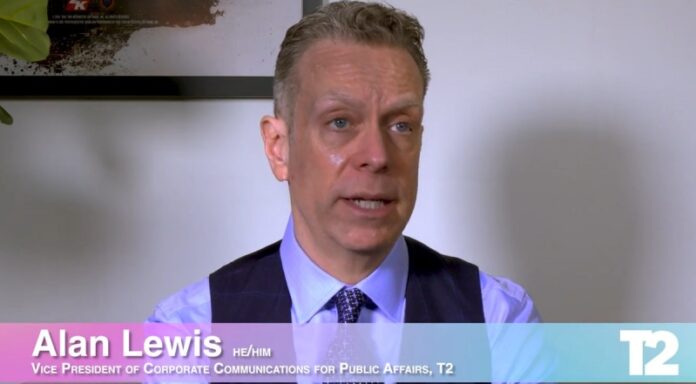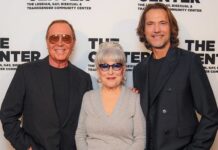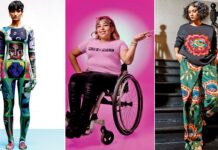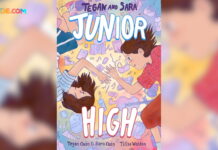Take-Two Interactive has partnered with Gay Gaming Professionals to post a series of videos that support diversity, equity and inclusion (DE&I) as well as its own internal employee resource groups (ERGs).
The partners will post a series of five videos from Take-Two’s various employee resource groups that focus on DE&I issues on the Gay Gaming Professionals’ YouTube channel starting on Wednesday. The groups will post new videos once a week.
I interviewed the leaders of some of the employee-run groups to understand the thinking behind the videos and the partnership. The first video is about allyship, or supporting people who are underrepresented in the company or society. Later videos will hit other diversity topics.
One of the more interesting things I learned was that Zynga, a younger company founded in San Francisco in 2007, had a lot to teach Take-Two — founded in 1993 — about ERGs (which Zynga hilariously called ZERGs, after the faction in StarCraft) and diversity. Take-Two acquired Zynga for $12.7 billion this year.
GGP was also able to stir things up by coming up with ideas for cross pollination. The GGP organization led by CEO Gordon Bellamy, who is also professor of the practice of cinematic arts at the University of Southern California, was able to bring learnings from across the industry to Take-Two. Bellamy thinks of the organic ERGs as systems, which are different in their impact on diversity from just counting diverse people as a percentage of the whole company.
“I like to say it’s more in the batter than in the frosting,” he said in an exclusive interview with GamesBeat. “These are organizations. They aren’t transitory. They’re part of Take-Two. These people are valued and need to be empowered.”
He also said, “In this particular case, what we discovered are these incredible communities that exist every day, that are working on things in their own groups. They’re working on things collaboratively that exist right now. 2022. And it’s up to us to tell our stories. It’s up to us to amplify these stories. So that people working in the industry — who aspire to work in the industry, people who trust us with their time to play our games — have some visibility into what’s happening.”
Starting a video series

Alan Lewis, vice president of corporate communications at New York-based Take-Two, worked with Bellamy on getting the project for the videos started.
Take-Two has been a longtime supporter and partner of GGP. Lewis said the initial conversations began with Bellamy in the winter of 2020, in the midst of the pandemic. Lewis asked GGP to become creators and curators of content and to use it as an educational platform. With the pandemic, there weren’t many live events to sponsor, but getting a message out online was still doable.
The teams started to work in 2021 and began storyboarding projects. At the same time, Take-Two announced its deal to buy Zynga, and it turned out that Zynga’s ZERGs were pretty advanced. And so the teams planned even more videos to do that could not only help employees but the whole industry.
“This series on the Gay Gaming Professionals channel will be a great opportunity to help educate other stakeholders both within the industry as well as those that are hoping to join the industry and pursue careers,” Lewis said. “And they’ll feel that there are spaces that not only represent them, but that will welcome them too. We have a lot to learn. And if we really want our creative forces to be truly representative of the audiences that they serve, we’re hoping that we can continue to broaden the scope and array of the diverse developers and creators and professionals that come to work for our organization.”
The partnership between Take-Two and GGP is part of a larger plan at the company and its labels over the last several years, focusing on support for afterschool programs, college scholarships, and more help for underserved and underrepresented communities, said Lewis.
“These programs are not only to allow us to give back, but it’s really about helping to cultivate and create the next generation of game players,” Lewis said. “It’s also about how we are changing our organization for the long term internally and really representing a lot of stakeholder groups. And one of the ways that we’re doing that is through our employee resource groups, and we refer to them as ERGs.”
Allyship

The first video is about allies who are advocates, champions, and supporters in the company. Bellamy believes this is a way to establish the future ethics and culture of games.
“Unity and togetherness is incredibly important when it comes to getting work done,” Bellamy said in the video. “If you want your business or your product or you know your demographic to be pleased with the product that you’re selling them, you want to have people that understand and feel supported as they’re putting their blood, sweat and tears into that work.”
The goal of the Ally ERGs is to create a wider community that supports those who might otherwise feel that they’re part of a very small group within the company. The Ally ERGs can be a way for people to share their struggles and find people who are enthusiastic, encouraging, and welcoming, the first video in the series says. The company sees value in getting senior people involved in these initiatives.
“We need people to understand where people in our community are coming from,” said one ERG member in the video. “We need advocates, we need people to advocate for LGBT rights. It’s also nice to have allies within our ERG because not everyone is out or is out to a different degree. And so we have we want to create a space for everyone, including allies.”
Bellamy said he hopes the videos can inspire people far and wide.
“I’m hoping that this is going to help people inspire people in the industry, and outside, to want to join, to see reflections of themselves, to see people who are working actively, to make a space for people to be all that they are, just like people did for us 30 years ago,” Bellamy said. “There’s still a mystery about where your games come from. Right, where do they come from? And I think it’s important for us as a craft to tell our stories and to share who we are, why we’re doing this.”
The power of ZERGs at Zynga

Once the Zynga-Take-Two deal closed, Zynga’s people began sharing their learnings about ZERGs.
“Since we’ve combined with Zynga, you know, all of our ERGs are now talking to one another and we’re trying to figure out ways in which we can maximize efforts to make our communities a great place to work and to be supportive,” Lewis said.
The partners chose to highlight the ERGs and ZERGS that are run by the stakeholders in the community. Take-Two wanted to share the learnings from those groups with the rest of Take-Two as well as the game industry.
Marcos Mancha is a licensing producer at Zynga and co-lead on the Z Pride ERG. Mancha is also a board member of the AmigoZ Latines ERG and a part of Neurodiversity at Zynga ERG. At Zynga for five years, he had never been in a company that had an ERG. Mancha learned more about it, he said in an interview.
“And I just love it,” Mancha said. “Being in an ERG or working at a place that has an ERG, especially in this climate where there is a lot of attrition happening with companies and people are leaving, is a very big reason why I have stayed with Zynga this long and will continue to stay.”
He described it as a mesh network, which exists in contrast to the way people typically work on games. They tend to work in silos and don’t communicate across group lines. The ERGs add an extra layer of communication across the company. That connects people to different teams.
“You start to collaborate in a way that is not just great for your personal growth and having an investment in the company itself. But it really does lend to the product. And being able to easily connect and move a lot more quickly within the company and really creates great quality products,” Mancha said.
ERGs and corporate human resources departments can and do work together at Zynga. Mary Plaisted, senior director of talent management and DE&I at Zynga, works in human resources on DE&I, social impact, learning, and talent management. She thinks the ERGs help improve the business outcomes at the company through things like anticipating different perspectives about games.
“I think about the work my team does, and then the work the ERGs do, and for me the two go hand in hand. My team actually can’t achieve the goals we set and the mission we’re on without really strong committed ERGs,” Plaisted said.
Zynga has ERG chapters for Women at Zynga (WaZ) in the United Kingdom, India, and other places where the company has offices.
Mancha noted how some of the games have been altered through the maturity of the ERGs. He said that CSR2 did a partnership with BMW to wrap a car with the rainbow flag for Pride in the racing game. Someone in the meeting asked what other games were doing. and from that question the idea spread to other games at Zynga. They got approval from Zynga’s leadership to spread the #PlayWithPride hashtag. The overwhelming response across employees and the market was positive, Mancha said. Within a year, the hashtag made its way to a Times Square electronic billboard.
“That was unbelievably mind blowing,” Mancha said. “The result is I have people in meetings advocating for things they didn’t advocate before. I don’t think that would have happened without having the ERGs in place.”
Plaisted noted that if game teams have questions about the way something is portrayed in a game, Zynga has a process where it can create an inclusive review request. A team can find people inside the company to help or find a third party with a different perspective to help people with their blind spots or how something might be best represented in a game. The inclusion topics can cover a wide range of things such as neurodiversity.
But the expertise should not just come from the outside. Chanel Ward, director of DE&I on the corporate level at Take-Two, said in an interview that the work of cultural transformation and take decades and the company’s teams need to be intentional about things like internal excellence and cultural competency.
Growing ERGs at Take-Two

Ward is part of a relatively new effort to grow diversity and inclusion at Take-Two. She joined a year ago to lead the global DE&I strategy and saw how much passion GGP and the existing Take-Two ERGs were bringing to the table. She said the ERGs have gotten a lot done, but they have also given themselves permission to slow down and take care of themselves so they can sustain their efforts. Like Zynga, Take-Two has learned these employee-led groups were a positive thing.
“Our ERGs really help us foster community,” she said. “They role model many of the tenets of inclusion that we want to see echoed in our environments. They support educational programs that enhance cultural competency across the board.”
Ward acknowledged the company has a lot of work to do globally to plant these ERG communities in other places. The ERGs bubble up where people start them, and so they aren’t universal. The parent company needs to make sure that everyone has access to them, she said.
“We’re at the very beginning stages,” she said.
But she said she was proud of what Take-Two has done both internally and externally to support diversity causes. For instance, Take-Two invested in the inaugural USC’s Gerald A. Lawson Foundation to create scholarships for Black and Indigenous students to attend the top-rated gaming school. She expects efforts like that to continue.
Veronica Dining, senior director of DE&I at 2K, said agreed that it has been good to learn from the more mature ERGs at Zynga as Take-Two moves ahead with its own DE&I journey. She has been encouraged by how the ERGs are spreading across Take-Two in a variety of territories around the world.
“We have definitely seen over the past 18 months or so the value of having our emerging communities and there is so much great thought partnership that comes from our ERGs and ZERGs,” Dining said. “We are really wanting to support that they can bring their authentic full selves to the workplace.”
Black Take-Two

Bringing your full self to work isn’t easy, and not all ERGs start with warm topics and mild-mannered conversations. Bertram Hudson, a senior product manager on the marketing technology team at Take-Two said in an interview the Black Take-Two ERG was born out of the murder of George Floyd and the trauma that came from it. While that was a painful time, Hudson was encouraged at the support the company gave as the group formed.
“I felt like it really bonded us in a way that we wanted to make sure that we were there to support each other as we needed,” Hudson said. “We were able to band together and also speak to our leadership of how we were looking for them to support us as well and to support the community. And it’s been like a really wonderful journey to see how receptive they’d been in that conversation.”
The group has grown in the past couple of years and has members in places such as the U.K. New chapters are spinning off.
Molly Sewalk is an events director at Take-Two and a founding member of the T2Q, a queer ERG. She likes the fact that, rather than coming from top down, the ERGs at Take-Two are born from the bottom up. Those communities know their needs better and they need resources and backing from the corporate supporters. She noted that ERGs such as hers and Hudson’s have co-hosted events together such as a Pride event in the summer. She said the group has been around for about 18 months and it learned from Zynga how to create international chapters that rolled up to a larger organization.
“One of the most impactful things about the ERGs is how every ERG has supported the membership of other ERGs,” Hudson said.
Together, Hudson noted the groups brought Bellamy out to speak on topics like gaming, belonging, and intersectionality — in recognition of how many people are multifaceted with multiple identities.
I asked Hudson about what it was like to have those difficult conversations in the workplace and present the company with things it could do.
“Preparing for the conversation was just understanding that it was like putting people first,” Hudson said. “We understood we were all colleagues of the organization working together.”
He noted how the pandemic blended both work lives and personal lives.
“For all of the Black employees, we don’t get to take off our skin,” Hudson said. “That doesn’t change. So when we were experiencing this trauma on a loop, that was also happening during work. So it was just, like, we couldn’t separate those.”
He felt that, as an organization, making the kind of games it made, Take-Two needed to support the Black community.
Lewis said that CEO Strauss Zelnick does quarterly town hall conversations with the employees and encourages employees to ask questions. Lewis said the company believes its greatest resources are people and they should show up with the best versions of themselves. That means listening to them when their concerns are about the murder of George Floyd.
“It was very clear that we had a community of colleagues that wanted to talk and wanted to share their experiences, and that wanted us as an organization to not only listen and respond. But to be in partnership on potential ways we as an organization could be a part of cultural and social solutions,” Lewis said. “We were were very open to it. And I think having the conversation wasn’t difficult. I think the difficult part is everybody dealing with their emotions and their feelings in the moment as a citizen as an individual and how you coalesce that positive energy.”
Bearing fruit?

Lewis said the company’s games are becoming more and more reflective of the communities they serve.
“And part of the ways that happens is by having a diverse base of creators and, and being able to tell stories and create experiences that are authentic, that are relevant,” he said.
Others said the fruits of the DE&I efforts are showing up in the products. Dining noted how NBA2K23 featured women cover athletes from the WNBA: Sue Bird, Candace Parker and Diana Taurasi. That’s an example of how representation shows up in 2K games, Dining said. Hudson noted that 2K worked with a group, Support Black Colleges, to get their apparel into the game.
I’m looking forward to seeing more of the video series in the coming weeks.
Bellamy said, “It’s a two-way street. This is a story about community. This isn’t a story about individuals. This is a story about communities working together. Not to only be valuable in their output of incredible games, but to be of value. This is a frankly historic conversation we’re a part of right now. My role here is to amplify this.”
GamesBeat’s creed when covering the game industry is “where passion meets business.” What does this mean? We want to tell you how the news matters to you — not just as a decision-maker at a game studio, but also as a fan of games. Whether you read our articles, listen to our podcasts, or watch our videos, GamesBeat will help you learn about the industry and enjoy engaging with it. Discover our Briefings.








